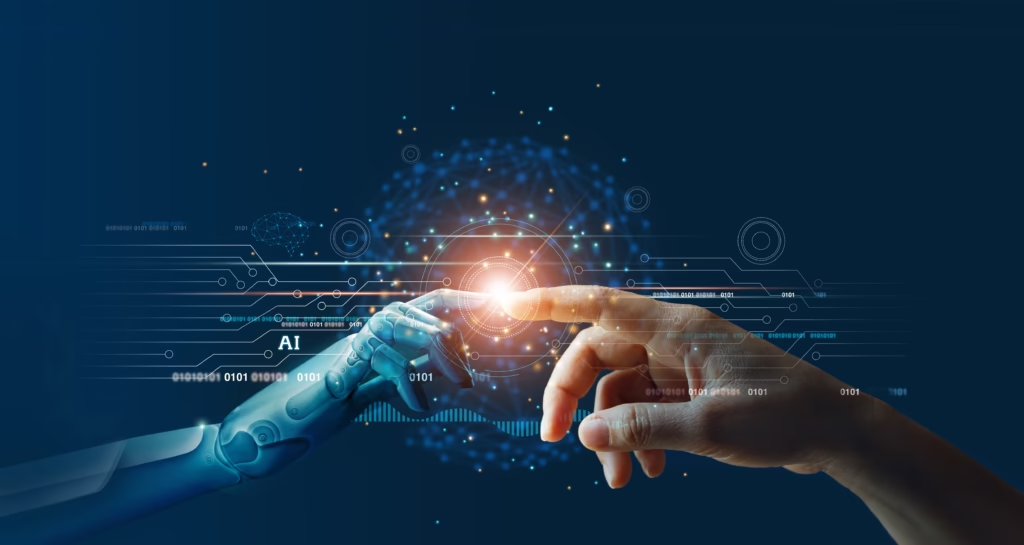- The private security industry is undergoing a technological revolution driven by artificial intelligence (AI) and advanced surveillance technologies. With the increasing need for enhanced security solutions, businesses and individuals alike are turning to AI-powered security systems to ensure better protection and efficiency. The global private security market size was valued at USD 235.37 billion in 2023 and is projected to grow from USD 247.75 billion in 2024 to USD 385.32 billion by 2032, exhibiting a compound annual growth rate (CAGR) of 5.7% during the forecast period. This rapid growth reflects the rising demand for smarter, technology-driven security measures that can outperform traditional security methods.
The Role of AI in Private Security
AI is transforming the private security landscape by introducing intelligent automation, predictive analytics, and real-time threat detection. Unlike conventional security systems that rely heavily on human monitoring, AI-driven security solutions enhance situational awareness, reduce human error, and improve response times.
⦁ AI-Powered Surveillance Systems
Modern surveillance systems are no longer limited to passive video recording. AI-powered cameras can analyze video feeds in real-time, identifying suspicious behaviors, unauthorized access, or potential threats. Features such as facial recognition, license plate recognition, and anomaly detection enable security personnel to act proactively rather than reactively. These advancements significantly improve security in commercial buildings, residential areas, and public spaces.
⦁ Predictive Analytics and Threat Detection
AI-driven security systems utilize predictive analytics to assess risks based on historical data and real-time inputs. Machine learning algorithms analyze patterns and anomalies, allowing security teams to predict and prevent security breaches before they occur. For example, AI can identify unusual behavior in crowded areas, signaling potential threats such as theft or violent incidents.
⦁ Automated Access Control
AI has also revolutionized access control by integrating biometric authentication methods such as fingerprint scanning, facial recognition, and voice recognition. These AI-driven access control systems ensure that only authorized individuals can enter restricted areas, minimizing the risk of unauthorized access and enhancing overall security.
The Impact of Surveillance Technology
Surveillance technology has evolved significantly, moving beyond traditional closed-circuit television (CCTV) systems to sophisticated, AI-integrated solutions. Modern surveillance tools now include drones, thermal imaging, and real-time monitoring via cloud-based platforms.
Smart Cameras and Real-Time Monitoring
High-definition smart cameras equipped with AI capabilities provide 24/7 monitoring with minimal human intervention. These cameras can detect and track movement, recognize faces, and even analyze emotions to assess potential threats. Security personnel receive instant alerts about suspicious activities, allowing them to respond swiftly.
Drone Surveillance
Drones are becoming an integral part of private security operations, especially for large properties, industrial sites, and event venues. AI-powered drones can patrol designated areas, provide live video feeds, and even respond to security incidents autonomously. With thermal imaging and night-vision capabilities, drones can effectively monitor areas that may be challenging for traditional security measures.
Cloud-Based Security Solutions
Cloud-based security platforms allow real-time data access and remote monitoring from any location. Security companies can store and analyze vast amounts of surveillance data, improving efficiency and reducing the need for on-site personnel. These cloud solutions also enable better coordination between security teams, law enforcement agencies, and emergency responders.
Challenges and Ethical Considerations
While AI and surveillance technology offer significant advantages, they also raise concerns regarding privacy, ethical use, and potential misuse. Facial recognition, for instance, has sparked debates over privacy rights and data security. To address these concerns, governments and regulatory bodies are implementing stricter policies on data protection and ethical AI usage in surveillance.
Another challenge is the risk of cyber threats targeting AI-driven security systems. Hackers may attempt to manipulate AI algorithms, disable security measures, or access sensitive data. To mitigate these risks, organizations must invest in robust cybersecurity measures, including encryption, firewalls, and regular system updates.
The Future of AI in Private SecurityThe future of private security lies in the continued integration of AI, machine learning, and advanced surveillance technology. As AI becomes more sophisticated, security solutions will become more proactive and efficient, reducing reliance on human intervention. Emerging technologies such as blockchain for secure data storage, AI-driven threat prediction, and autonomous robotic security units will further shape the industry.
Additionally, AI will play a crucial role in creating smart cities with interconnected security networks. Governments and private security firms will collaborate to develop AI-driven urban security systems that can detect and prevent criminal activities in real-time, enhancing public safety.


